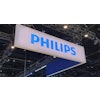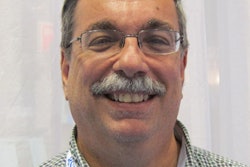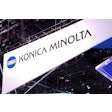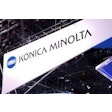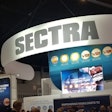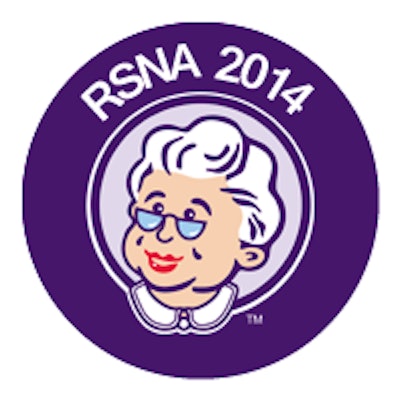
CHICAGO - When I was in my 20s, my best friend and I used to go out a few times a week looking for Ms. Right-for-Now. More often than not he would be successful, because he exuded a confidence that women found extremely attractive. I, on the other hand, would drive home alone.
The difference between us wasn't looks -- we both were decent looking, had 30-inch waists, and were college graduates, but he had a confidence about himself and knew what he was and was not willing to accept. I had the self-esteem of a brick and unrealistic expectations of what Ms. Right-for-Now had to be to even consider an "interaction."
That pretty much describes the PACS market this year. Some companies -- very few, actually -- exude a self-confidence, while others are just another brick in the wall (with apologies to Pink Floyd).
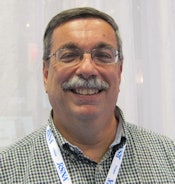 PACS consultant Michael J. Cannavo.
PACS consultant Michael J. Cannavo.Though the majority of my friend's paramours were attractive, a few redefined average at best, and fewer still would be classified as coyote ugly. In those latter circumstances, did he compromise his standards, as I had suggested to him? Not at all, he replied -- in the dark, it's all the same. I had to laugh walking the floor of RSNA 2014 this year, reflecting back to his statement, because even with the lights on, PACS at RSNA this year is pretty much all the same.
PACS has become a commodity market, even more so this year than in the past. Now, I admit that even in my waning years I still don't understand women. Few men do, and those who say they do lie about other things as well -- unless, of course, they have Mel Gibson's mind-reading abilities in the movie "What Women Want."
What I do understand, however, after 30 years in the market, is PACS. Sadly, most of the vendors still don't seem to understand the full solution. They get the technology part, but the application escapes them. Sounds like me in my 20s, although some of my closest female friends might say I'm not much different now.
Those people who find comfort in consistency would love today's PACS market. It's all the same in the dark -- and in the light as well. Are there differences between each vendor's PACS? Absolutely, but just as I could never express to Ms. Right-for-Now what made me unique and close the deal back then (or even now), most PACS vendors can't say what makes them unique.
In each booth I visited, I said, "Give me your elevator pitch." An elevator pitch is supposed to be 30 seconds (or less) on what makes you unique. Instead, what I got from most vendors was the equivalent of taking the stairs up the Empire State Building -- and still I never got the answer I was looking for.
Now, I can relate: I never got my elevator pitch down either, which is probably why I never met the gal who would bring me back to her Houston penthouse while Boz Scaggs played "Love Look What You've Done to Me" in the background.
But I was just "selling" me, not PACS, and if I didn't hit my quota, I'd at least still be employed. The same can't be said for PACS vendors. We've already seen at least five times as many vendors enter and exit the marketplace since the mid-1980s, and market consolidation is not that far off. After all, you can go a lot longer without a date than you can without generating enough revenue to keep you alive. And that, my friends, is a problem not just for vendors but for end users as well.
Information overload
What I found at this year's meeting was a severe case of information overload, which, in more cases than not, leads to analysis paralysis. That, in turn, often leads to the client failing to make a decision, which means no sale. And no sale is not a good thing.
Is this the vendor's fault? Only partly. End users are spending much less time at the show -- a few days at best -- and are focusing on technologies they feel they may benefit from. While end users may think they know which technology will address their challenges, unfortunately, this often isn't translated very well to the vendor.
As a result, instead of learning about possible viable solutions that can help them, they get a primer in Technology 101 from the vendor. In my last Straight Talk From the PACSman article, I addressed what needs to be looked at internally before embarking on a technology purchase. Have people done that? Not from what I've seen, although in their defense, the article came out less than a week before the show, and performing the tasks outlined takes considerably more time than that.
Still, clients can and should have at least a baseline understanding of what problems they want the technology to solve, so the vendor can show them how their solution works best. Using cloud technology is a perfect example, as nearly as many vendors had cloud solutions at RSNA 2014 as those that had vendor-neutral archives (VNAs).
Do you want a cloud PACS or cloud VNA? Public cloud, private cloud, or hybrid? Is your current PACS configured to adapt to cloud use or will upgrades be required? "Know before you go" should be the new mantra for everyone attending the RSNA meeting in the future.
It also doesn't help that most vendors had abysmal to nonexistent messaging in their booths, requiring them to resort to 30- to 60-minute demos to explain what they have to offer, let alone how it may help the end user.
Now, how any company can spend 50% or more of its marketing budget on a trade show like RSNA and then say nothing without requiring a full-on demo defies logic. I should be able to look at a booth and in 10 seconds tell you who the vendor is, what they offer, and what advantages and benefits they provide. One out of three is not what I call good odds.
Fortunately, vendors are getting smarter in two areas. With a few notable exceptions, booths were smaller and more consolidated, although a few of the larger booths had so much unused floor space you could hold a barn dance. Also, the vast majority of interactions resulted from preset appointments, in most cases 80% or more. This was a better use of everyone's time, though, again, the primary messaging could be better.
Radiologists are no longer king
There were other changes this year as well. At a show dedicated to serving radiologists, it is somewhat shocking (at least to them) that radiologists are no longer king. In fact, in the PACS arena, some parties have relegated radiologists to a status just slightly higher than serfs.
While this statement is sure to be considered highly controversial and even blasphemous, the reality is that the balance of power has shifted from department-based informatics solutions to enterprise ones where IT departments and C-suites reign. Radiologists' input has been reduced to evaluating the performance of the reading workstations and providing feedback on dictation and transcription.
Technologically, there were very few surprises. VNAs are all over the place, but no one seems to have an industry-standard definition of just what a VNA is, how it is used, and what it brings to the table. The major PACS vendors have continued their NIH (not invented here) attitude to justify developing their own VNA solutions, even though several of the larger independents have solid solutions they could just as easily have marketed on an OEM basis. Every vendor that now offers PACS also says they have a VNA -- and if you doubt me, just ask them.
Medical image sharing is a hot topic, but true imaging sharing versus just using the Web or a universal viewer once again needs to be defined.
Universal and zero-footprint viewers were all over the place, leading many to suggest that the era of PACS is in a downward spiral soon to be replaced by VNAs and Univiewers. Even I draw the line at the simplicity of the concept, but it does make for an interesting discussion.
Information is king, with PACS digital dashboards being highlighted and business analytics and business intelligence solutions shown in a number of booths.
As expected, dose management software was a very hot topic, fueled initially by mandated use of CT dose reduction software in Texas and California -- soon to be followed by most other states. As a result, nearly every PACS vendor offers dose management software, and many address critical results reporting, emergency department discrepancy reporting, and even peer-review software.
One of the biggest surprises this year was the inclusion of digital pathology in several vendors' PACS offerings to round out the full enterprise solution that included not just radiology but cardiology, lab, and electronic medical records (EMRs). With PACS sales flat at best and only low-margin software and upgrades sustaining many companies, this entree into the digital pathology marketplace allows another higher-dollar, higher-margin sales avenue to help keep the companies alive.
Full digital pathology systems aren't cheap, averaging more than $200,000 for a system, but these may also serve as a catalyst for a digital telepathology marketplace, much in the way teleradiology served to expand night owl and overread services into a fully developed remote interpretation market. Interestingly, the teleradiology market that grew exponentially for years was sparsely represented at RSNA 2014 by just a few key players.
And now, without further ado, here are the 2014 PACSman Awards.
The Michael Jackson Award
What is it with these people who feel they need to walk around with a surgical mask on? If you are that sick or that paranoid about germs, please moonwalk your butt back home until you can show up without looking like the one-handed gloved wonder -- may he rest in peace. Woo hoo ...
The Log Cabin Award
To the group who gave out maple syrup lollipops shaped like maple leafs. Nice idea ... eh? Eh? No worries.
The Finding Nemo Award
To the company that rented out a venue that was vacated by a major vendor a few years back and had a stellar turnout there.
The John Denver 'Sunshine on My Shoulders' Award
To all the major vendors who used to have great parties and canceled them all back in 2012, claiming that the federal government's Sunshine Act preventing payments to physicians meant they couldn't have a party. Here's a revolutionary idea: Keep the cost to less than $25 per person, as many independent vendors did this year who had great parties, and it's not an issue. People don't care if it's prime rib and shrimp or pigs in a blanket -- it's a chance to network with their peers in an informal setting.
The Bullwinkle Award
To the group that gave out moose-shaped key chains. "Hey Rocky, watch me pull a rabbit outta my hat."
The Medusa Award
To the company that had all the clinical systems emanating from the top of the person's head, looking conspicuously like snakes.
The Jerry McGuire Award
To all the vendors using the word "complete" in their pitches. "You complete me" indeed ... now, show me the money.
The New Math Award
To the vendor that made volume claims that are very hard to fathom based on the facts surrounding both their product and marketplace, but who promised to get me the full audited results. Stay tuned.
The Depends Award
To the company that talked about referral leakage. Is this a urology show or a radiology one? I also love that they say referrals are "on the rise" if you use their system. Maybe I should give them the Viagra award instead.
The Big Brother Award
To the badge providers who still include RFID tracking devices on badges. At least they printed two badges per person, giving you the option of discarding the one with the RFID tracking -- if you knew the RFID one was there, that is.
The Mary Kay Feeling Award
To the aggressively annoying vendor that wanted to squirt me with some hand gel every time I walked by, requiring me to block their attempt with my RSNA bag. What part of no don't you understand? Where's the RSNA police when you need them?
The Walk Like an Egyptian Award
To the French company whose name in French meant "everything in the truck," but when you pronounced it it sounded just like an Egyptian king.
The Ethnic Diversity Award
To the company that allowed you to build your own Lego characters and had faces in tan, yellow, and dark brown to cover all ethnic bases. I tried to connect the head to the upper part of the legs to more correctly reflect where many people's heads are when it comes to IT, but it wouldn't allow me to do that. Darn.
The Older Than Jesus Award
To the company that claims they have been cloud-based "since Day 1" and were caught playing cards in their booth -- which, coincidentally, was also their giveaway. They were probably playing for Jesus' robe.
The 'What? No PACS?' Award
To the major vendor that decided to get away from the PACS term and instead call it simply "Imaging Software." How special -- just don't expect me to change my nickname to the ImagingSoftwareMan.
The good Lord willing, I'll be back for another RSNA -- my 31st next year. Hope to see you then.



